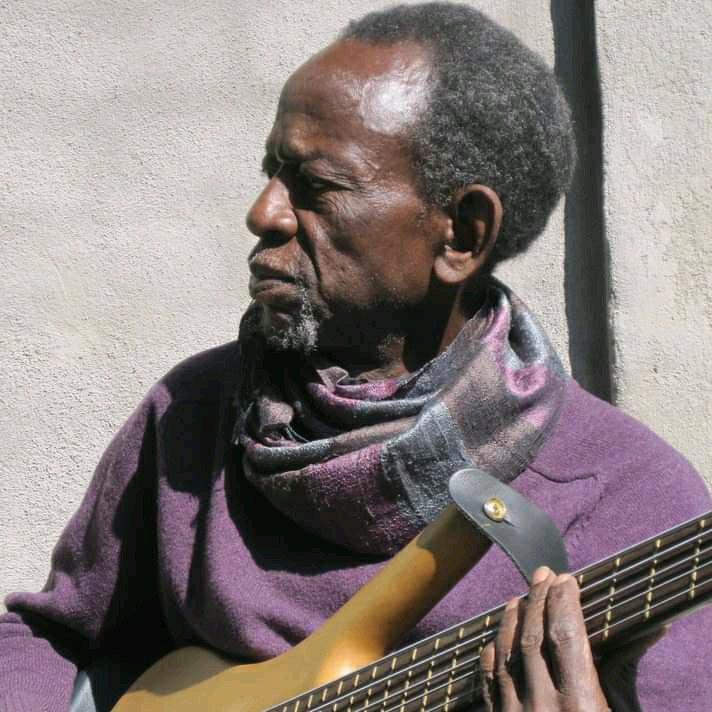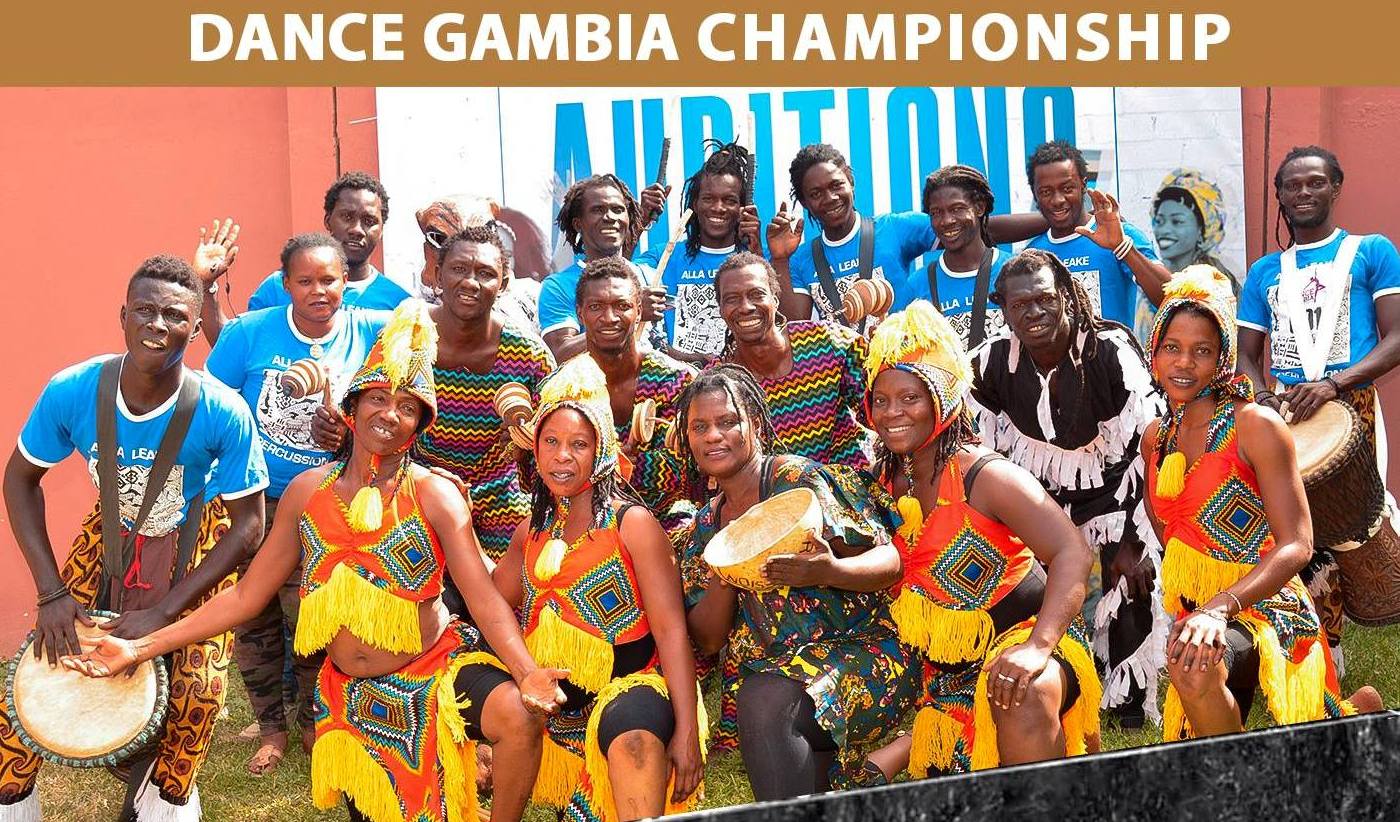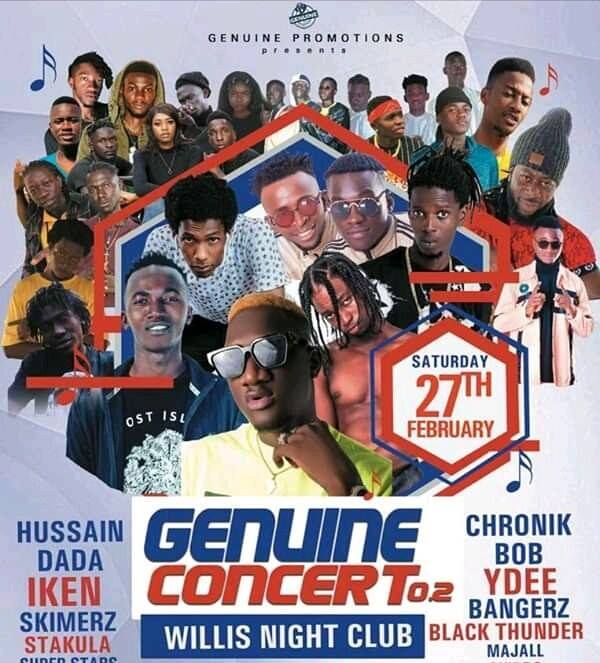By Badou Jobe
This concerns mainly Gambian artists with a solid professional status – in terms of professional management, financial means, established career in terms of performances, recordings, branding, marketing.
Touring is like any other business operation: vision > viability plan > networking > planning > fund raising > investment > preparation > realization > break-even (including money to invest in next tour) > success (or failure) > next tour (or other job).
GOING GLOBAL
Many artists hope to expand their career abroad, but often don’t know what it takes. Gambian artists predominantly favour hip hop/dancehall/reggae/r&b styles, lacking originality and often using lyrics in languages incomprehensible to audiences abroad. Worldwide the market is saturated with urban styles, and only acts with global appeal manage to make it internationally.
The overseas diaspora with worldwide a few dozen one-off events and venues/clubs is merely an extension of the home market, adding zero to international exposure.
As it is, a sustainable international career in urban music is a non-starter for Gambian artists due to the lack of appeal and relevant content.
Besides overseas audiences are spoiled and expect a sophisticated live show, with the vocalist backed up by a live band, substandard playback is a no-go.
Authentic African styles – e.g. Afromanding – however are internationally popular as proved by the likes of Foday Musa Suso, Musa Mboob, Dawda Jobarteh, Sankung Jobarteh, Sura Susso, Suntou Susso, Sona Jobarteh, Ayo Sonko, Juldeh Camara to name a few Gambian artists. (Ifang Bondi for instance performed at virtually every kind of event/festival/venue – pop, rock, world, reggae, jazz, latin, dance, techno, even classical music events.)
To get international recognition takes major investments, long-term planning and often years of plying the club circuit. That’s how almost all successful acts started off! One hit-wonders are a fluke, a life-time sustainable career is serious hard work.Doing showcases at music trade shows and music contests, and trying to support the bill of major acts is a useful way to to get exposure and earn professional credit.
African congresses/trade fairs: Visa for Music / MASA / Access / Dakar Music Expo
For international touring BOOKING AGENCIES are crucial, because – contrary to what Gambian artists believe – promoters DO NOT book foreign artists directly.
Booking agencies seek and negotiate contracts on behalf of the artist, plan tours, take care of publicity, facilitate work permits and work visa – instead of tourist visa which explicitly forbid employment. (That’s why artists traveling on spec with a tourist visa get stuck in the informal club circuit and private events with the risk of extradition when controlled).
Getting on a booking agency’s roster requires a professional status as recording artist + outstanding performer and, most importantly, artistic originality.
Agents, promoters, producers check artists’ LIVE performances, at live gigs and/or online on YouTube, social media. So NEVER upload crap stuff – messy shows/rehearsals etc. – it may badly backfire!
People often think of international tours as fun trips, but a schedule of 30+ gigs at a 30,000+ road kilometres is like a military exercise. That’s why I choose my musicians not only for their musical skills but also for discipline, endurance and positive disposition.
True, touring often is an exhilarating experience – like meeting and collaborating with fellow musicians from all over the world – but it isn’t everyone’s cup of tea. Besides it tends to wreck family life.
DOING THE MATHS
Planning an overseas tour you have to do the maths:
– Return tickets
– Costs of visa and applicable work permits and mandatory medical insurances
– Overseas local travel costs and off-day boarding & lodging and/or per diems (promoters normally pay hotels + hospitality for the performance day only)
– Promotion & publicity expenses (e.g. mailing loads of (digital) press kits & CDs and on request full-colour printed posters to agencies/promoters/press)
– Gambian overhead + office + local travel costs (e.g. to consulates abroad)
– Legal fees – e.g. drafting contracts
– Management fees / overseas agency fees / 10% contingency.
That gives you the grand total of the overhead, enabling to work out how many gigs you’ll need to break-even.
To be augmented with the artists fees that you aim to realize – or that you must earn by law in case of work permits (requiring that foreign musicians’s earnings must equal the national minimum wages to avoid unfair competition).
Warning! All overseas fees are by law net fees, because the employer deducts applicable taxes and social contributions. If The Gambia doesn’t have a treaty of avoidance of double taxation with the country in question you are due to be taxed again by the Gambian state. This would be an issue to be taken on by the Gambian Musicians union.
VISA / WORKPERMITS
[Culled from my comment to Enc’s claim that getting foreign visa is a god given right for Gambian artists, to be taken care of by the Gambian government]
“About the demand that “National Steps” should be taken to defend people’s rights” – that’s complete nonsense!
The Gambian government has no authority whatsoever to decide whether a Gambian national has the right to enter the UK – or any foreign country for that matter.
Nor has any Gambian institution/association any power to facilitate overseas employment for artists.
Foreign governments don’t give a hoot whether a visa applicant is considered a well-behaved nice guy/gal by their compatriots.
Instead of ALWAYS blaming others for their tribulations Gambian artists should get themselves familiar with the nitty-gritty of working abroad!
Here’s in a nutshell how it works:
Getting visa is all about the legitimacy of the overseas party that invites the Gambian to their country.
A professional Gambian artist seeking employment abroad needs a legitimate employer – e.g. booking agency, artist agency, promoters etc. – qualified/licensed to employ the artists in compliance with applicable labor and tax legislation.
The employer will facilitate getting the proper visa by providing the necessary documents like legal, financial and fiscal guarantees and – if applicable – work permits.
Additionally, to endorse the visa application, each of the event/venue promoters must send an official invitation to the consulate, specifying the names and passport details of the individual visa applicants (band members) + binding confirmation that the promoter provides net fees, (proportional) compensation of travel costs, boarding & lodging etc.
Visa/work permit procedures are lengthy, being processed by different departments, and strictly based on first come first served. So late and/or incomplete applications are one of the main reasons of having visa not issued.
(BTW It’s not embassies but consulates that issue visa.)
Regular visitor’s visa strictly forbid paid employment! Hence artists/DJs going overseas on the spec tend to get stuck in the informal circuit of small clubs and private events. With the risk of extradition when controlled and finding breaching the labor law.
EU visa regulations for artists are similar for all artists from outside the EU seeking employment. These regulations prioritize employment for EU resident artists. So foreign artists may get their visa application rejected unless they offer something special in an artistic sense which local artists cannot provide.
US artist visa require the service of an immigration lawyer which are expensive. Most US tour agencies will take care of that.
Countless African artists perform in the EU all the time. I have been touring overseas for decades with my 8 piece band, including extensive UK tours, and NEVER had any visa or work permits denied. On the contrary, we enjoyed considerable UK tour support, as well as subsidies in other countries.
It’s all a matter of scrupulously following the applicable procedures.
Diplomatic passports for artists are absurd, because artists don’t represent the state but only themselves as private employment seekers.
Also diplomatic passports DO NOT exempt from visa and work permit regulations.
In fact African diplomatic passports – especially Gambian – tend to be a liability. Overseas immigration and customs are notoriously suspicious of African diplomatic passports carried by civilians and often submit them to extra scrutiny. Check this and this.
CONTRACTS
One of the most important issues when touring overseas is solid contracts, because the stakes and risks are so much higher.
- Between Artiste and Promoter / Employer
This contract contains details of the performance conditions.
– Date – time schedule – details soundcheck & performance – fees, yes/no door deal etc. plus a lot of tax/legal stuff in small print. The contract routinely includes an exclusivity clause.
– Separately the general rider (hospitality, hotels, dressing room specs, merchandising etc.) and the technical rider (the most extensive part of all – stageplan, very detailed backline specs, FOH and monitor mix details, contact details of the sound/technical crew) which are both part and parcel of the contract.
The technical rider is arguably the most crucial one, because without a good sound and bespoke backline the show is doomed to be a failure.
As a live musician I will ALWAYS make sure to get a top notch sound crew and sound, whatever the cost, even if it eats into the performance fee.
(But that’s something that’s completely lost on many Gambian artists. They are hellbent on cashing as much money as possible, cheating the audience out of the product they paid for.)
It’s important to use your own contract. The promoter’s default contract obviously reflects the interests of the promoter.
- Between Artiste and overseas Agency / Employer
The overseas agency represents the artiste when dealing with promoters. The contract always includes an exclusivity clause.
And again a lot of tax and other legal stuff in small print.
In case the agency also acts as the artiste’s employer there will be additional clauses (fiscal/legal).
Agents often use their own contracts with the promoters. But it is important that their contracts reflect in essence your own contractual conditions and contains your own riders.
- Between Artiste and Manager
Contract between artiste and manager in case the manager is in charge of organizing the overseas tour. Focusing on detailed clauses re legal accountability, compensation of costs, manager’s autonomy in negotiating contracts etc.
These contracts have to be submitted with the visa applications.
Conflicts due to sloppy contracts can severally impact, even destroy the artiste’s international career.
Make sure to have a good entertainment lawyer!
[Ifang Bondi artist contracts were based on a guaranteed number of shows and specified net performance fees (all taxes paid) + perdiems, equal to European standard income.
All tour production costs – travels, visa, work permits, insurances, medical costs, board & lodging, instruments + related gear, stage costumes etc. were paid for by the Ifang Bondi management.]
OBSESSION WITH OVERSEAS GIGS
To be honest I really don’t understand this absurd obsession of Gambian artists with overseas gigs.
- The competition is fierce. Countless renowned African acts – both local-based and on tour from Africa – are fighting for a limited number of slots.
- The touring overhead is horrendous – travel costs, visa, insurances, off-day per diems, agents fees, publicity etc. etc.
- Overseas artists fees are WAY BELOW the fees which Gambian artists demand – going by their own statements.
Gambian rappers demand in excess of 50,000 Dalasi (= 1,000 Euro) for a 15 mins. playback performance + extra fees for rehearsals.
Whereas EU professional artists (conservatory graduates) on the average earn 250 Euro net per person for a regular 2-hours live show! And US fees are even far lower…
Recently I saw a 6-piece Malian top band performing for a 500 Euro fee for the entire band!
It makes far more sense for Gambian artists to focus on the vibrant and accessible West African market with audiences that relate to their music, style, even lyrics – to start with Senegal, but also Mali, Guinea, Sierra Leone, Liberia, Ghana etc.
There are countless African festivals, congresses/trade events e.g. Visa for Music / MASA / Access / Dakar Music Expo, music contests, media etc. offering opportunities to build up a professional profile and career.
After all most internationally popular African artists earned their overseas acclaim and career on the strength of their domestic success and status.
Note Badou Jobe, is a vateran composer, arranger of 30 years experiences as a band leader of Ifandi Bondi and Super Eagles toured across the globe.




